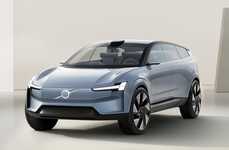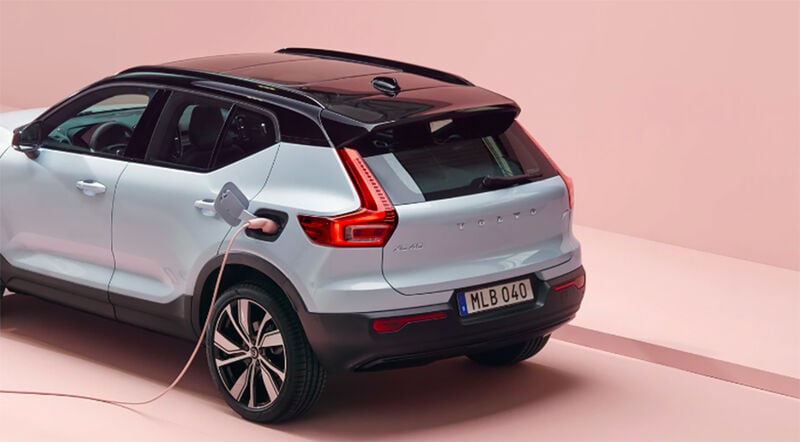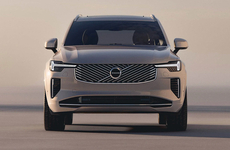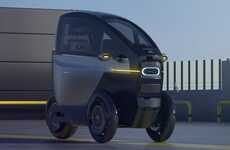
Volvo is Going Leather-Free and Fully Electric by 2030
Grace Mahas — March 4, 2021 — Autos
References: cnet & veganfoodandliving
In an effort to be more sustainable and meet its goal of becoming carbon-neutral by 2040, Swedish car manufacturer Volvo announced the brand will go leather0free and fully electric by the end of the decade. Last year, Volvo unveiled its first electric car which was dubbed the 'Polestar 2,' and this week the brand launched its second model, the C40 Recharge. Notably, the new model will be sold exclusively online.
Volvo is a brand committed to environmental sustainability and according to the brand, by 2025, it is aiming for 25% of all material within its car to be recycled and bio-based. According to Volvo, "Instead of leather, we will use several different material alternatives, including sustainable vinyls and textiles."
Image Credit: Volvo
Volvo is a brand committed to environmental sustainability and according to the brand, by 2025, it is aiming for 25% of all material within its car to be recycled and bio-based. According to Volvo, "Instead of leather, we will use several different material alternatives, including sustainable vinyls and textiles."
Image Credit: Volvo
Trend Themes
1. Sustainable Materials in Auto Manufacturing - Opportunities for alternative materials and sustainable manufacturing processes in the automotive industry as demonstrated by Volvo's commitment to using sustainable vinyls and textiles in place of leather.
2. Increasing Demand for Electric Cars - Rising demand for electric cars as seen in Volvo's decision to go fully electric by 2030, creating opportunities for innovation in EV technology and infrastructure.
3. Online Car Sales - Opportunities for companies to create online platforms for car sales, following the exclusive online sales model adopted by Volvo for its C40 Recharge model.
Industry Implications
1. Automotive - The automotive industry could benefit from the increased demand for electric vehicles and interest in sustainable materials and manufacturing processes.
2. Textile - The textile industry has an opportunity to work with automotive manufacturers to develop sustainable and durable fabrics and materials for use in electric cars.
3. E-commerce - E-commerce companies have opportunities to create innovative online platforms for car sales following Volvo's success with exclusive online sales for their new model.
1.6
Score
Popularity
Activity
Freshness























